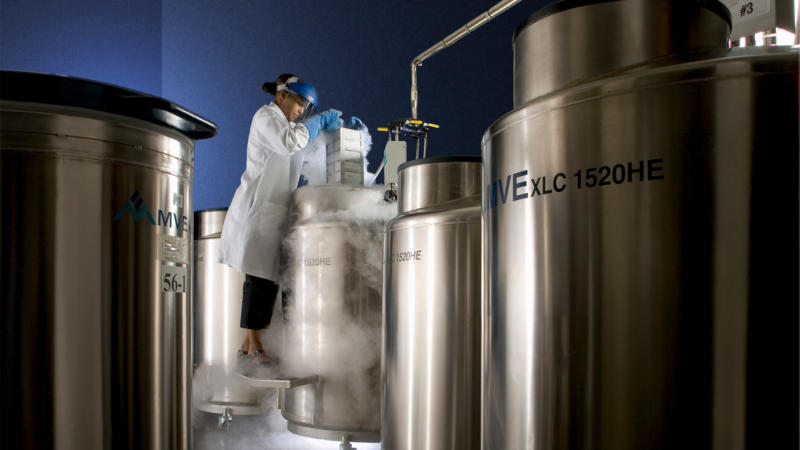The idea of being raised from the dead may not be far-fetched.
The Alcor Life Extension Foundation (Alcor) plans to test if science and technology can bring back a deceased life through cryonics. Linda and Fred Chamberlain spearheaded the company back in 1972 after being enlightened as attendees at a cryonics conference in early 1970, CNET reports.
“Our goals were to start an organization that could save people’s lives and give them an opportunity to be restored to health and function,” Linda Chamberlain previously told CNET. “If we’d known how hard it was going to be, we might not have tried to do it. But once you get started, something about saving lives, you can’t give up.”
Determined to provide a second chance of life, Alcor currently houses 200 bodies at a lab. Bodies are frozen for $220,000 and the head and brain for $80,000, CNET reports. Incoming patients will have their bodies incubated and kept on ice.
A mechanical thumper will keep blood flowing to further prep the body for cryonics to avoid extraneous cellular damage. Patients will then enter the operating room and will be filled with cryoprotectants. Here bodies will be cooled for hours. After additional measures to ensure water and ice no longer remain in the brain, patients will have their body temperature lowered to (-196 C). Patients will stay in long-term care rooms for decades or centuries.
Hopeful Parents Look To Alcor To Revive Daughter
According to the U.S. Sun, baby Matheryn Naovaratpong, nicknamed Einz, is a patient currently being held at Alcor. She died from brain cancer in 2015. Her parents, Nareerat and Sahatorn, made the unconventional decision to preserve their daughter’s brain following 10 surgeries, 12 rounds of chemo, and 20 rounds of radiation, which failed to eradicate cancer.
Desperate to give their child a chance at life, Sahatorn pinned the idea of cryonics to his wife. After months of deliberation, the pair both agreed to continue forward with cryonics.
“This was the way to keep her… we must keep her,” Sahatorn said in the Netflix documentary “Hope Frozen: A Quest To Live Twice,” according to The U.S. Sun.
The future of Einz will rest in the hands of the evolution of technologies and the growing understanding of science.
“Our best estimates are that within 50 to 100 years, we will have the medical technologies needed to restore our patients to health and function,” said Linda Chamberlain, according to CNET. “I’m an optimist.”


